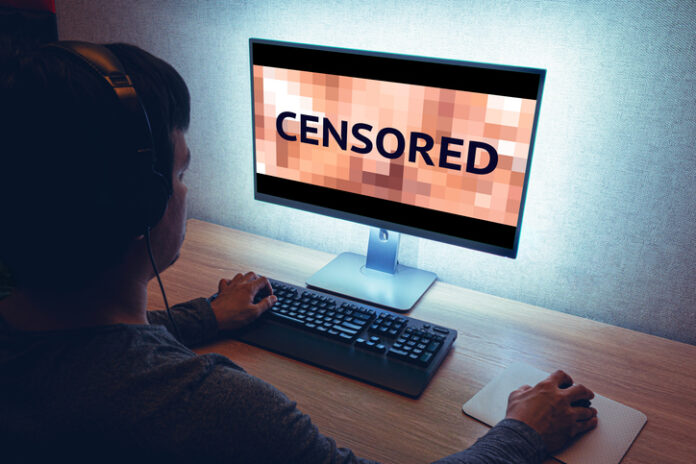In 1996, when the internet was in its infancy, Congress passed the Communications Decency Act to achieve the following:
- “to promote the continued development of the Internet and other interactive computer services and other interactive media”;
- “to preserve the vibrant and competitive free market that presently exists for the Internet and other interactive computer services, unfettered by Federal or State regulation”; and
- “to ensure vigorous enforcement of Federal criminal laws to deter and punish trafficking in obscenity, stalking, and harassment by means of computer.”
Back then, the internet was like the wild, wild West of the communications world. So, to provide protection for internet startups, Congress also instituted the following:
- “Protection for ‘Good Samaritan’ blocking and screening of offensive material. No provider or user of an interactive computer service shall be treated as the publisher or speaker of any information provided by another information content provider.”
- “No provider or user of an interactive computer service shall be held liable on account of any action voluntarily taken in good faith to restrict access to or availability of material that the provider or user considers to be obscene, lewd, lascivious, filthy, excessively violent, harassing, or otherwise objectionable, whether or not such material is constitutionally protected.”
At the time, this seemed like a good idea. In the twenty-four years since it was passed, however, this law has been abused more than a North Korean dissident.
On September 23, Attorney General Bill Barr issued a letter calling for the modernization of this law, specifically Section 230.
“Section 230 was enacted in the early days of internet commerce to immunize online platforms for claims based on third-party content hosted by the platform and for the good-faith removal of harmful content to children,” Barr wrote. “Before Section 230 was enacted, courts held that an online platform that removes certain content from its service could be held liable as a publisher or speaker for all other content. Platforms thus faced a dilemma. Platforms could have tried to moderate third-party content but risk being held liable for any and all content posted by a third party, or choose not to moderate content to avoid liability but risk having the platform overrun with obscene or defamatory content. Section 230 resolved this problem by providing that online platforms were not liable for third-party content posted on their services and were not liable for removing certain categories of harmful content.”
Sounds fair enough. However, instead of protecting children from obscenity, the multinational tech giants have exploited these good-faith provisions in order to push a political and social agenda. That has to stop.
Instead of the promised utopia of diversity of opinion fostered by competition, morover, the internet is dominated by a few colossal multinational corporations uniformly hostile to traditional American values.
“Many of today’s online platforms are no longer nascent companies but have become titans of industry,” Barr wrote. “Platforms have also changed how they operate. They no longer function as simple forums for posting third-party content, but use sophisticated algorithms to suggest and promote content and connect users. Platforms can use this power for good to promote free speech and the exchange of ideas, or platforms can abuse this power by censoring lawful speech and promoting certain ideas over others.”
This is the crux of the matter. In recent years, there has been a multitude of cases of tech giants such as Google, Facebook, Twitter, YouTube, etc. censoring conservative political content.
According to a recent Pew Research Center poll, 73 percent of American adults believe “social media sites intentionally censor political viewpoints that they find objectionable.” Among self-identified Republicans, 90 percent believe so.
Unlike the mainstream legacy media, which is held accountable for libel and censorship, the big tech companies are insulated from liability by Section 230. This is unfair and has created an environment within the big tech platforms that all but incentivizes this bad behavior because there is no legal recourse for those who have been or will be harmed.
For instance, when The Washington Post published misleading and defamatory stories regarding the incident involving Kentucky high school student Nick Sandman, the newspaper settled a subsequent lawsuit because it could be held liable for damage caused by its false statements. The big tech platforms, by contrast, have never been held to account for their decisions, because of their immunity under Section 230.
Importantly, the tech giants can and do censor political content, which is overwhelmingly of the conservative persuasion, on a daily basis. No one has been able to hold them to account, because they are essentially immune to the laws that apply to everybody else, thanks to Section 320.
With a major election just two weeks away, this issue is more relevant than ever. The Section 230 liability shield and protection for “Good Samaritan” content blocking are vestiges of a bygone era. Allowing monopolistic multinational corporations to engage in censorship destroys the political process and puts them essentially in charge of the nation’s elections.
Considering the massive reach of today’s social media platforms, Section 230 ought to be updated to reflect the current environment, in which the vast majority of Americans receive their news via these platforms.
Until that happens, the tech giants will remain above the law, which is surely where they would prefer to remain forever.











